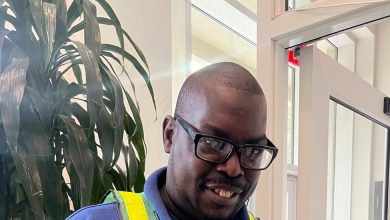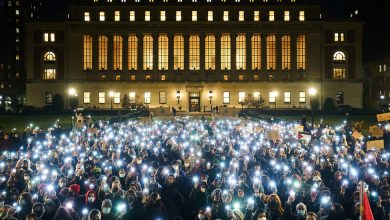The Lessons of Brooklyn Tech

For many years I lived across the street from Stuyvesant High School, Manhattan’s elite public school, and I would sometimes get a ride from a father of one of the students. He was a cabdriver from Pakistan, a man who liked to strike up conversations with his passengers. Usually we talked about two things: his pride in his academically gifted kids (another child was already at Cornell) and his dismay at the state of affairs in Pakistan.
Eventually, the child at Stuyvesant went on to another elite university, and I saw less of my friendly driver, and then I moved out of the city. But I’ve been thinking about him again in connection to the two best things I’ve read about immigrants in recent months — and what both say about our never-ending debates over “American values.”
The first was Michael Powell’s luminous report “How It Feels to Be an Asian Student in an Elite Public School” in The Times last week. The second is Roya Hakakian’s book “A Beginner’s Guide to America,” a Tocquevillian gem of sociological and psychological analysis that explains, to a mainly American readership, just how strange this country can be to a newcomer, even — or especially — in what seem like the most banal aspects of life.
Powell’s story looks mainly at Stuyvesant’s sister school Brooklyn Tech, where 61 percent of the school’s nearly 6,000 students are of Asian descent, as against just 15 percent who are Black or Latino. This is nearly the exact reverse of the ethnic composition of New York’s public schools, leading to charges that schools like Brooklyn Tech — where admission is gained by scoring well on a standardized test — are functionally racist.
This, in turn, has led to calls to get rid of the test altogether or establish variable passing scores to further diversify the school or otherwise tinker with the rigorous meritocratic formula that turned Brooklyn Tech and Stuyvesant into factories for future Nobel laureates and other high achievers.
There’s a lot to ponder in Powell’s story, but two points stand out. The first is how much genuine diversity gets lost in our current diversity-speak, with its singular focus on Black and Latino diversity.
At Brooklyn Tech, Powell describes a “river of teenagers” who are “Bengali and Tibetan, Egyptian and Chinese, Sinhalese and Russian, Dominican and Puerto Rican, West Indian and African American.” Of these, nearly two-thirds come from economically disadvantaged backgrounds, and many don’t speak English at home. How is this evidence of racism, functional or otherwise?
The second is the progressive war on the concept of merit, culminating in former Mayor Bill de Blasio’s move last year (rejected by his successor, Eric Adams) to eliminate the city’s gifted-and-talented programs for young children.
In 1981, Powell reports, nearly two-thirds of Brooklyn Tech’s students were Black or Latino. What’s changed over four decades isn’t that New Yorkers have become more racist. It’s that New York’s public schools have catastrophically failed so many students through lowered expectations, diminished curriculums and limited opportunities for accelerated learning despite the highest per pupil spending of the country’s largest school systems. The success of Brooklyn Tech only casts an unflattering light on every other corner of the public school bureaucracy.
But there’s another part of this story, one that’s best explained by Hakakian, a Jewish immigrant from Iran with a distinguished career as a poet and essayist. What she captures is what I could sometimes glimpse in my rides with my Pakistani cabby: not just a parent’s ambition for his child’s success or even the redemption of his own sacrifices but also the completion of a journey from identity to self.
“Americans lead with ‘I,’” Hakakian writes with the perceptiveness of someone who still sees the United States as a slightly foreign country. “Lean in, they recommend, in praise of self-assertion.”
“The idea of ‘me time,’” she adds, “is so quintessentially American that it might as well be dressed in a Stetson and a pair of cowboy boots.”
A paradox of the immigrant experience is that it frequently involves parents from cultures that emphasize collective interest raising children here adept at self-actualization — that is, the sorts of kids who fill the halls at Brooklyn Tech.
Today, conservatives are furious about what they see as the left’s assault on meritocracy and traditional family values. And progressives are furious about what they see as the right’s assault on advances in equality and public education. But is there a place in America where the ideals of meritocracy and equality, traditional values and public good so seamlessly come together as they do in a school like Brooklyn Tech?
It wasn’t long ago that Americans understood that the promise of this country lay in its belief that openness to immigrants was an affirmation of our values, not a rejection of them; that our belief in equality was a means of strengthening the ideal of merit, not obstructing it; and that the purpose of a public education was to get beyond the politics of identity, not wallow in it. It shouldn’t be too late to reclaim these understandings again.
The Times is committed to publishing a diversity of letters to the editor. We’d like to hear what you think about this or any of our articles. Here are some tips. And here’s our email: [email protected].
Follow The New York Times Opinion section on Facebook, Twitter (@NYTopinion) and Instagram.



